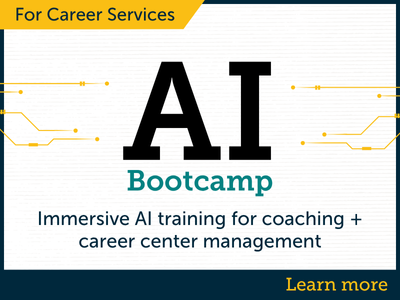The Lehman College School of Business was launched in July 2022, and during its first school-wide retreat in fall 2022, its faculty committed to producing career-ready graduates, which they recognized as essential for students to gain employment.
“To achieve this goal, we agreed to intentionally equip our students with competencies, which is done through the promotion of applied learning in all our three programs: accounting, business, and economics,” says Dene T. Hurley, Ph.D., dean
of Lehman College’s School of Business.
“Since employers value the NACE Career Readiness Competencies, and given the recent emphasis placed by the Association to Advance Collegiate Schools of Business [AACSB] accreditation standards on students’ competencies, we decided to adopt and incorporate them into our programs.”
Developing these competencies is extremely important for early career professionals because the job market is very competitive, with many graduates from different business schools seeking employment.
“Today’s graduates must differentiate themselves and demonstrate how they add value to organizations,” Dr. Hurley says.
“For most of our students who call the Bronx and New York City their home and wish to stay around after graduation, competing for jobs in the New York area is even more competitive, especially in fields like finance, accounting, and marketing, since many other business school graduates also want to work in this region.”
She points out that employers desire graduates who are ready for their careers upon graduating so they can be assigned immediately to the roles they are being hired for and start contributing to the organization.
Before the Lehman College School of Business was launched in 2022, one department—the Department of Economics and Business—served more than 1,400 undergraduate and graduate students.
“As a department, we started our research and learned about employers’ expectations of our graduates and the importance of NACE competencies,” Dr. Hurley recalls.
“We also started talking with potential industry partners and relationships to help us better understand what they may be looking for from graduates while also connecting more and hearing from our alumni.”
The move to a school of business brought additional staff—including the director of experiential learning—to assist the team.
“We became more focused and intentional on student success and how to help our students become more competitive in their career pursuits and the job market,” Dr. Hurley explains.
“Our medium- to long-term plans to move toward getting AACSB accreditation for our School of Business are also critical in our desire to do a more effective job of equipping our students with competencies and the importance of postgraduate success of our students, which the accreditation organization emphasizes.”
Implementing the NACE Competencies
As a first step in competency implementation, Lehman College School of Business faculty reviewed the school’s courses and mapped the learning objectives to align the competencies with each course. Each course syllabus includes a list of both learning objectives and the competencies that the course develops so that it is clear to the students what they will gain.
“In addition to incorporating the competencies in our courses, we recognized that competency building would be more effective if co-curricular activities supported it,” Dr. Hurley adds.
This led to the launch of the School of Business Learn, Engage, Ascend, and Progress (LEAP) Program in fall 2023.
In the first year, the experiential learning director, who helped implement this initiative, focused on building three competencies that the faculty identified as ones with which they needed support: career and self-development, leadership, and professionalism.
“In designing LEAP, we used activities related to the three competency buckets that are offered in our school and through campus-wide programs like career services and student affairs and leadership programs,” Dr. Hurley explains.
For example, all the career-related activities—such as resume building, interview workshops, and others—offered by the Lehman College Career Exploration and Development Center are listed under the career and self-development competency building bucket.
Faculty are encouraged to incorporate LEAP in their courses, Dr. Hurley points out.
“These participating faculty members agreed to give 10% of their course grade to students’ participation in the LEAP activities,” she notes.
“This approach led to much greater and wider participation and engagement of our students on campus. For fall 2024, two additional competencies—teamwork and technology—have been added to bring the total number of competencies under LEAP to five.”
There are several key steps the Lehman College School of Business took to secure buy-in of faculty and staff, including:
- Establishing a shared vision for the school;
- Educating and explaining to the faculty and staff, especially the paths that can be taken to achieve the goals; and
- Working together and communicating with them regularly.
“Once we agreed in our school at the time of the launch that our goal is to gain AACSB accreditation in the medium-long run, while also providing better jobs and career opportunities for our students, moving to incorporate competencies and aligning them with courses, and supporting them with LEAP made sense for our faculty and staff,” Dr. Hurley explains.
The business school administration has since held a school-wide retreat every semester to provide updates on progress and discuss the next steps in its planning. Faculty and staff are consulted in the goals and strategies’ planning and implementation stages.
The Importance of Badging and Data Collection
For its LEAP program, the Lehman College School of Business optimizes standard badging and actively refines its digital badging to enhance competency development through Suitable.
This approach allows students to earn gold, silver, and bronze badges that showcase their achievements and competency attained across various co-curricular experiences and competencies.
“These digital badges are more than symbols; they represent verified skills and milestones, adding depth to students’ academic records. With these badges, students can build a comprehensive co-curricular profile that they can share on LinkedIn and other professional networks, providing them with a competitive edge in the job market,” Dr. Hurley says.
“Potential employers and industry professionals can easily see the specific skills students have gained, such as leadership, professionalism, career and self-development, technology, or teamwork, which adds value to their resumes. Integrating digital badging makes experiential learning visible, measurable, and meaningful for students’ professional growth.”
The implementation of the LEAP program goes beyond simple tracking and collecting metrics, Dr. Hurley says.
“It aims to foster confidence and a sense of community and help students become more competitive in the job market,” she explains, adding that the platform allows staff to promote and measure engagement and assess outcomes.
“By actively participating in experiential activities in class and on campus, students are building critical competencies and becoming more engaged with their academic and professional journeys.”
The insights allow the school to understand student progress and make data-driven improvements to the program.
“For our school, these data are particularly crucial for obtaining AACSB accreditation, as it provides concrete evidence of our experiential learning initiatives’ impact on student success,” Dr. Hurley says.
“We can confidently track, showcase, and continuously improve these initiatives, ensuring our programs meet the highest standards in business education.”
To measure the effectiveness and/or impact of this program, every academic department has targeted goals for the level of competency they expect students to reach and the percentage of students who should meet this level.
The assessment plan agreed upon by all three departments in the Lehman College School of Business, and voted on by its faculty, includes an assessment of half the competencies in a two-year cycle.
“Our plan is that by the end of fourth year, all competencies will be assessed at least twice in the academic departments,” Dr. Hurley notes.
Assessment of four competencies in Year 1 is followed by a department faculty meeting on closing the loop, and a second round of assessment is conducted in Year 2. The preliminary data collected in fall 2023 and spring 2024 showed the need to tweak the assessment plans; the faculty intend to use the revised plan this academic year.
“Meanwhile,” Dr. Hurley says, “for assessing competency building through LEAP and co-curricular activities, we track student engagement by competency bucket through the Suitable platform.
The school saw a significant jump in the completion of activities by competency bucket since fall 2023, when LEAP was introduced. In fall 2023, only 5% of students who signed up for the program were engaged. However, by spring 2024, there was a jump in the number of students (by 50%) and engagement rate (by 17%).
“Most encouraging is the rise in the number of lower-level students with a strong interest in signing up for LEAP,” Dr. Hurley points out.
“Our students also reported feeling more engaged on campus and having more of a sense of belonging.”
Lessons earned … and shared
Dr. Hurley has several recommendations for other institutions considering implementing the NACE Career Readiness Competencies in and beyond the classroom, including to:
- Use faculty and departmental collaboration—Engage faculty in competency mapping and encourage them to incorporate competency-based learning activities. Faculty can allot a percentage of course grades to program activities, increasing student engagement and fostering a culture of active involvement in skill-building opportunities.
- Align with accreditation standards—If seeking accreditation, ensure that competency-based activities support accreditation goals by providing measurable evidence of students’ skill development.
- Promote student confidence—Emphasize how competency development helps students differentiate themselves in a competitive job market. Building these competencies prepares students for specific roles and fosters self-awareness of their skills, enhancing their confidence and adaptability as they begin their careers.
The implementation of the NACE Career Readiness Competencies throughout the Lehman College School of Business is helping students develop their skills to stand out in a crowded job market and prepare them for early-career success, while providing employers with new hires who are more confident, capable, and career ready.
“Having a strong academic background is no longer sufficient for employers as they look more for career-ready individuals who have skills,” Dr. Hurley notes.
“Building competencies while in college also allows students to discover skills they may not realize they have or enjoy using while also helping to build a foundation of confidence, knowing what they can do and achieve.”
Timeline of Implementation of the NACE Career Readiness Competencies at the Lehman College School of Business
July 2022: The Lehman College School of Business was launched.
Fall 2022: The first school-wide faculty retreat was held where they agreed to the vision to prepare the school’s move toward Association to Advance Collegiate Schools of Business accreditation and to prepare career-ready graduates by adopting NACE competencies in all academic programs in the school.
Spring 2023: In the second school-wide retreat, the department chairs and faculty shared the competency-building maps they have aligned with learning objectives. All the school departments also discussed and agreed upon a competency assessment plan. Each department's faculty voted on these maps, and faculty began work on incorporating applied learning activities to build competencies.
Fall 2023: The Learn, Engage, Ascend, and Progress (LEAP) Program was launched to support the building of three competencies. During this third school-wide retreat, faculty shared how they intentionally build competencies through applied learning work in their courses. Assessment of the competencies started.
Spring 2024: During the fourth school-wide retreat, faculty updated and continued to share and discuss best practices in incorporating applied learning in their courses to build competencies.






